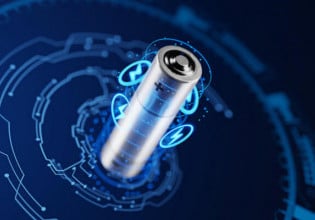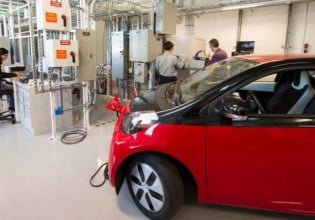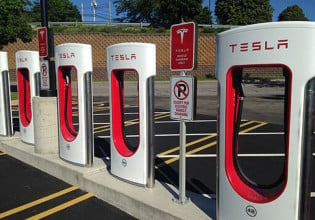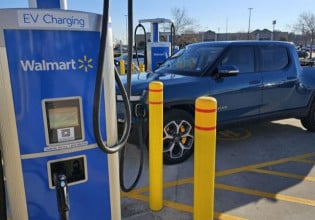Mercedes-Benz (Stuttgart, Germany), a division of DaimlerChrysler AG (Stuttgart, Germany), unveiled its F600 Merc Hygenius research vehicle, which is rated as a "compact" car with a focus on the family, and has a zero-emissions fuel cell drive capable of 86 kW and 350 Nm, but uses only 2.9 L/100 km while having a range of about 400 km. The Hygenius features virtual displays, new seats, and other pioneering technologies designed to improve passengers' safety and comfort.
A fuel cell uses the chemical reaction between hydrogen and oxygen to generate electrical power in a process that produces no emissions. The fuel cell in the Hygenius is around 40 percent more compact than previously, runs more efficiently, and is notable for its good cold-start characteristics, which has been achieved due to the inclusion of innovations such as redesigned fuel stacks, an electric turbocharger, and a new humidification and dehumidification system.
The fuel cell drive alone generates about 62 kW and torque of 250 Nm; the rest comes from a lithium-ion battery that stores surplus power generation in a fashion similar to that of a petrol/electric hybrid drive. The electric motor draws power only from the battery at low speed, and couples battery and fuel cell power when accelerating. Like other hybrids, the electric motor doubles as a generator that charges the battery during braking or while running downhill. As well as generating clean energy to drive the research vehicle, the fuel cell can serve as a mobile power source; its 66 kW of electrical power would be quite sufficient to keep several houses supplied with power. All that is required is to connect the device to a power socket in the tailgate.
"This represents a major step towards bringing the fuel cell drive up to full production maturity, a goal that we aim to achieve some time between 2012 and 2015," said DaimlerChrysler Board Member Thomas Weber. "By developing the fuel cell, we are creating a new basis for supplying energy in tomorrow's vehicles, which will make a further lasting improvement to their environmental compatibility."






